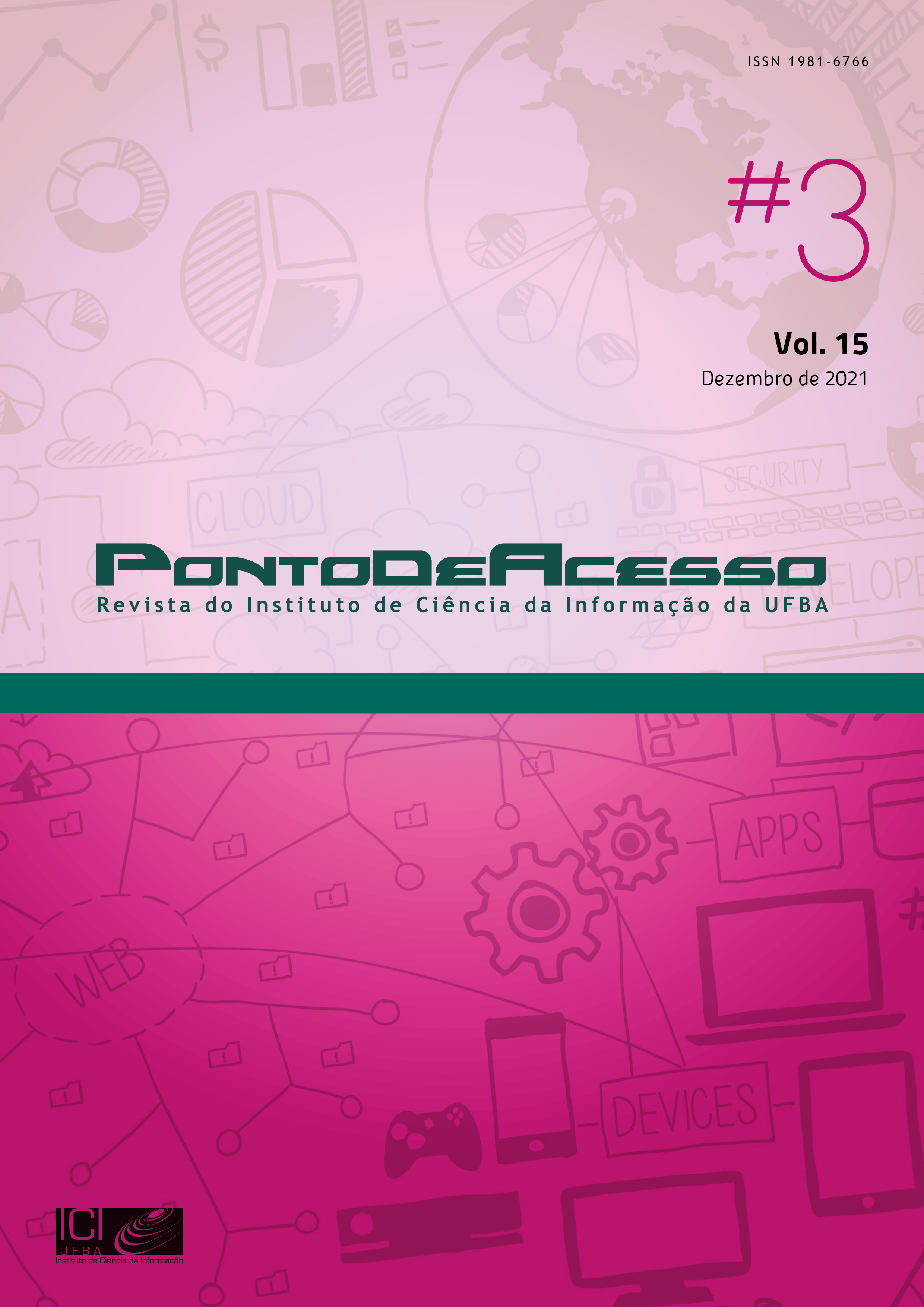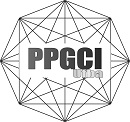INTERCULTURAL AND MULTILINGUAL INTERFACES FOR ACCESS TO INFORMATION AND KNOWLEDGE
THE ETHICAL DIMENSION
DOI:
https://doi.org/10.9771/rpa.v15i3.47477Keywords:
intercultural interfaces, multilingual access to information, ethical dimensionAbstract
This article is a position paper on the importance of respecting cultural and linguistic diversity in the design of SOCs. This respect is one of the ethical principles in the organization of knowledge and considered one of the foundations of Human Rights (Universal Declaration of Human Rights). It will be based on a brief review of the literature on ethics in the organization of knowledge (OC), linguistic relativism as well as on cultural approaches to the organization of knowledge (Guimarães, 2000; 2015); Favier and Mustafa El Hadi (2013); Mustafa El Hadi 2015), among other things, and access to information in an increasingly globalized world.
Downloads
References
BEGHTOL C., A proposed ethical warrant for global knowledge representation and organization systems, Journal of Documentation, 58/5 (2002a), p. 507-532.
BEGHTOL C., Universal Concepts, Cultural Warrant and Cultural Hospitality, in Advances in KO, Proceedings of the Seventh International ISKO Conference 10-13 July 2002 Granada, Spain, (2002b), p. 45-49.
CAFE, L. MONTEIRO DE BARROS, M.A. (2017). « Production scientifique brésilienne sur la classification à facettes », In HUDON M. & MUSTAFA EL HADI W. (Eds.), De la théorie à la pratique, la classification à facettes revisitées, Les Cahiers du numérique, 13/1 (2017).
DAHLBERG I., Brief Communication: How to Improve ISKO's Standing: Ten Desiderata for Knowledge Organization, Knowledge Organization, 38/1 (2011), p. 68-74.
DEXTRE C. S. & ZENG, M. L., From ISO 2788 to ISO 25964: The Evolution of Thesaurus Standards towards Interoperability and Data Modeling, Information Standards Quality, Special Edition: Year in Review and State of the Art of the Standards (2012), p. 20-26.
FAVIER L. & MUSTAFA EL HADI W., L’interopérabilité des systèmes d’organisation des connaissances : une nouvelle conception de l’universalité du savoir ?, in F. Papy (Ed.), Problématiques émergentes dans les sciences de l'information, 2013, Paris, Hermès.
GUIMARAES J.-A., « Time and space: two axes for a culturally slanted knowledge », Communication dans le cadre du Séminaire Européen de l’Ecole Doctorale Nord de France, intitulé : « Information et Education, des curriculums spécifique pour un monde globalisé », Maison Européenne de la Recherche, 3 novembre 2015.
HJØRLAND B., Facet analysis: The logical approach to knowledge organization. Information Processing and Management, 49 (2012), p. 545-557.
HJØRLAND B., Fundamentals of Knowledge Organization, Knowledge Organization, 30/2 (2003).
HJØRLAND B., Domain analysis in information science: Eleven approaches –traditional as well as innovative, Journal of Documentation, 58/4 (2002), p. 422-462.
HODGE G., Systems of Knowledge Organization for Digital Libraries: Beyond Traditional Authority Files, The Digital Library Federation Council on Library and Information Resources, 2000.
HUDON M., Accès thématique en bibliothèque numérique : le rôle du langage documentaire de type « thésaurus ». Dans PAPY F. (Dir.) Les Bibliothèques numériques, 2005, p. 151-177, Paris : Hermès Science.
HUDON, M. Expanding Audiences for Education-Related Information and Resources: Classificatory Structures on the World Wide Web. Cataloging & Classification Quarterly, 2003, vol. 37, n° 1-2, p. 81-96.
HUDON, M., ISO 25964 : pour le développement, la gestion et l’interopérabilité des langages documentaires, dans Documentation et bibliothèques, N° thématique Normalisation et normes pour la gestion de l’information et des documents, 58/3 (2012), p. 130-140.
JUANLAS B. & MINEL, J.-L. (2016), La construction d’un espace inter-patrimonial partagé dans le web de données ouvert, entre interopérabilité et stratégies institutionnelles, à paraitre in Communication, N° thématique sur « Interopérabilité culturelle », sous la direction de FAVIER L., MUSTAFA EL HADI W. & VINCK D, 2016, vol. 34, n° 1.
MARTÍNEZ-ÁVILA D. Propuesta de aplicación de la CDU en entornos multicontextuales distribuidos. Master's thesis, 2009, Getafe: Universidad Carlos III de Madrid.
MILLER P., Interoperability. What is it and why should I want it? Ariadne, 24 (2002).
MUSTAFA EL HADI W., Why Thesauri? In: Special Issue: on the Thesaurus “The Great Debate: This House Believes that the Traditional Thesaurus has no Place in Modern Information Retrieval.”, sous la direction de Stella Dextre Clarke and Judi Vernau (Eds.), in Knowledge Organization, 43/3 (2016), p. 211-214.
MUSTAFA EL HADI W., “Cultural Interoperability and Knowledge Organization Systems”, Keynote Address in ISKO-Brasil 3rd International Conference, III Congresso Brasileiro em organização e representação do Conhecimento, 17, 18 e 19 September Marília 2015.
SMIRAGLIA R., “Epistemology of Domain Analysis”. in SMIRAGLIA & LEE (Eds.) Cultural Frames of Knowledge, Ergon Verlag, p. 111-124.
TENNIS J. T., Epistemology, Theory, and Methodology in Knowledge Organization: Toward a Classification, Metatheory, and Research Framework, Knowledge Organization, 35, no 2/3 (2008), p. 102-112.
TENNIS J. T., Le poids du langage et de l'action dans l'organisation des connaissances : Position épistémologique, action méthodologique et perspective théorique., dans HUDON M. & MUSTAFA EL HADI W. (dir.), Dossier thématique, Études de communication, 39 (2012), intitulé « Organisation des connaissances : épistémologie, approches théoriques et méthodologiques », p. 15-40.
KAPLAN , F. D. KIANFAR, D. Il pleut des chats et des chiens: Google et l'impérialisme linguistique, in Le monde diplomatique, p. 28, 2015.
LANGLEY P. User modelling in adaptive interfaces. Proceedings of the Seventh International Conference on User Modelling, 1999, p. 357-370, New York: Springer.
ZENG M. L. & CHAN L. M., Trends and Issues in Establishing Interoperability Among Knowledge Organization Systems, JASIST, 55/5 (2004), p. 377-395.
KASHMAN, N., E. MÉNANRD and J. DREY. TIIARA: A language tool for bridging the language gap. In 18th International Conference on Human‐Computer Interaction 2016, Toronto, Ontario, 17‐22 July 2016. Lecture Notes in Computer Science, Vol. 9747, pp. 386‐95, Berlin, Springer.
KASHMAN, N., MÉNANRD, E. A study of cultural reflection in Egyptian government websites. In A. Marcus (ed.), 16thInternational Conference on Human‐Computer Interaction 2014, Heraklion, Greece, 22‐27 June 2014. Lecture Notes in Computer Science, Vol. 8518, pp. 139‐147, Berlin, Springer.
LATOUR, Bruno. La clé de Berlin, Petites leçons en sociologie des sciences, Paris, Le Seuil, Coll. « Points sciences », (1996/1993), p. 43-44.
SCHOPER, Y. HEIMGARTNER, R. “Lessons from Intercultural Project Management for the Intercultural” HCI Design Process, in A. Marcus (Ed.): DUXU/HCII 2013, Part II, LNCS 8013, pp. 95–104, 2013, Springer-Verlag Berlin Heidelberg, 2013.
MÉNANRD, E. Repérage d’images: en quête d’un nouveau modèle. In J. Boustany, E. Broudoux, G. Chartron (eds.), Diversification et renouvellement des médiations, Actes de la 4ème conférence Document numérique et société, Zagreb, Croatia, April 29‐30, 2013, Collection "Information & Stratégie", De Boeck Editions, pp. 207‐20.
HUDON, Michèle. ISO 25964 : pour le développement, la gestion et l’interopérabilité des langages documentaires. Documentation et bibliothèques. 2012, vol. 58, n°3, p. 130-140.
JORNA, Kerstin, DAVIES, Sylvie. Multilingual thesauri for the modern world - no ideal solution ? Journal of Documentation, 2001, vol. 57, n°2, p. 84-95.
Downloads
Published
How to Cite
Issue
Section
License
Copyright (c) 2021 PontodeAcesso

This work is licensed under a Creative Commons Attribution 4.0 International License.
A PontodeAcesso utiliza a licença do Creative Commons (CC), preservando assim, a integridade dos artigos em ambiente de acesso aberto. A revista permite que o autor retenha os direitos de publicação sem restrições.








